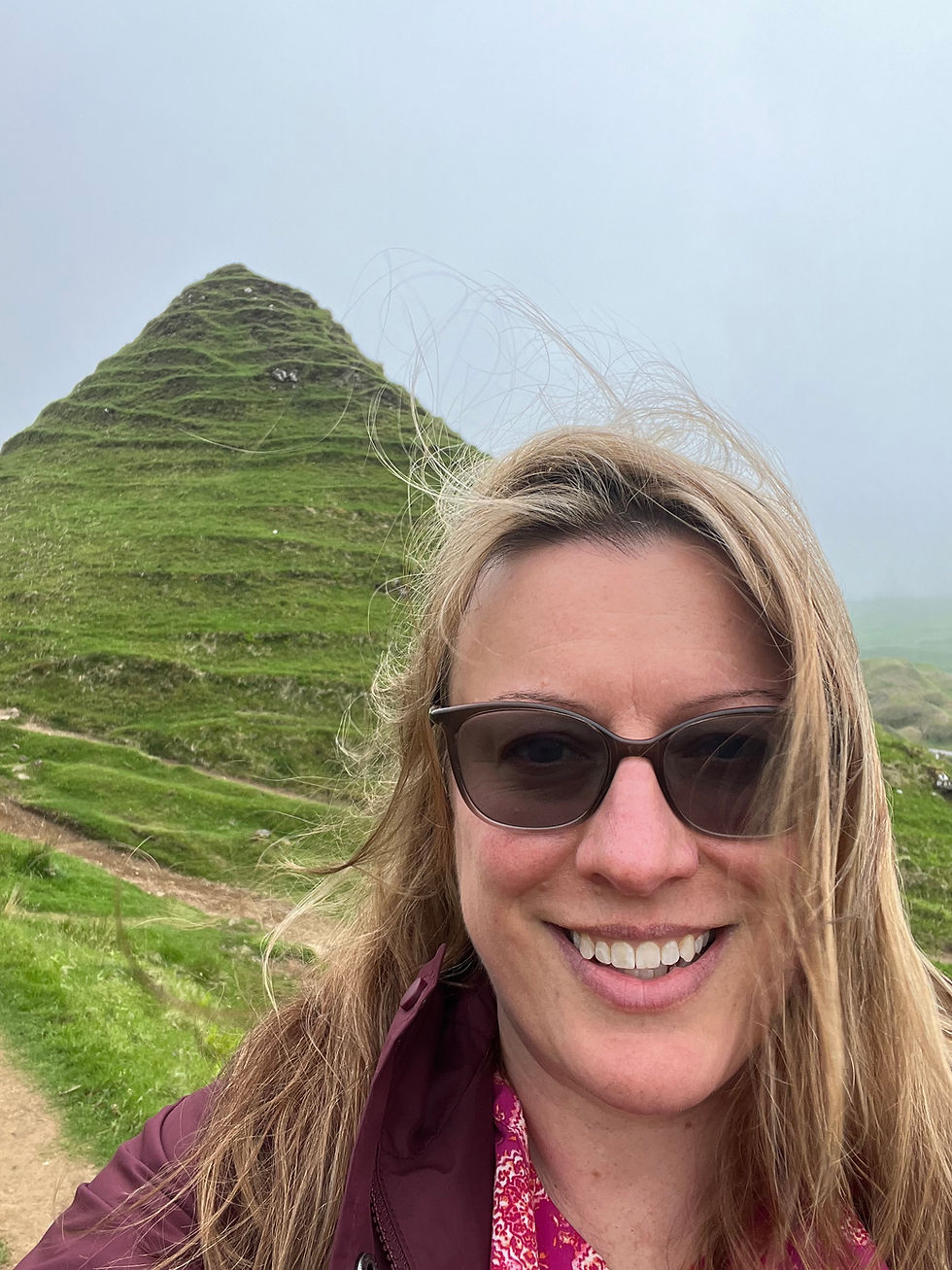Creating for Yourself: Lessons on Change from a Life spent Pursuing what Matters
- Sara Mangan Ramelb
- Mar 5, 2025
- 4 min read
There’s a certain magic in pursuing something just for yourself—no audience, no validation, no pressure. It’s a rare thing in a world that constantly nudges us toward sharing, optimizing, and monetizing every passion. My conversation with Chris Solomon left me thinking deeply about how we engage with the things we love and what that means for navigating change.

Chris, a lifelong music lover and former college radio DJ, has always found ways to keep music woven into his daily life. But what struck me most was his perspective on creation: he makes music not to share, not to build a following, but simply because he loves it. There’s an ease in the way he integrates his passion into his life—sprinkling it in between work, family responsibilities, and everyday moments like waiting to pick up his son from baseball practice.
Sustainable Change is Rooted in Joy
One of the biggest reasons people struggle with change is that they frame it as an obligation rather than something that brings them joy. Chris’s approach—making time for music daily, even in the smallest ways—highlights an essential truth: sustainable change happens when you genuinely love what you’re doing. I have found this to be true across people and industries in my lifelong career in change as well; it is the reason the “I” in the THRIVE methodology is an examination and alignment with the things that we are Intrinsically motivated to do.
If you’re trying to build a new habit, whether it’s writing, exercising, or learning a new skill, it has to fit naturally into your life. Instead of forcing yourself to overhaul everything at once, ask: What’s the smallest way I can integrate this into my day? What is the part I genuinely enjoy about this that I can anchor onto and positively improve my day?
The Private vs. Public Struggle
In a time when so much of our identity is shaped by what we share online, there’s something refreshing about Chris’s decision to keep his music largely private. He reflected on how the pressure to share can sometimes rob an experience of its purity.
“If I put it out there and get judged, that’s all I’ll think about the next time I do it,” he admitted. “And I don’t want that to shut me down.”
This fear of judgment is what holds many people back from pursuing change in the first place. We hesitate because we’re afraid of getting it wrong, of looking foolish, of being criticized. But Chris has found a balance: he still creates, still improves, still finds joy in the process—without needing external approval.
For those of us wrestling with the fear of taking a leap, the lesson here is clear: you don’t have to share everything you create. Some things can exist purely for you, and that’s enough. It’s not just enough, but really a beautiful choice to engage with a lifelong passion that has not been unduly influenced by the fear factors that can change so much of our behavior for the worse.
Overcoming the Fear of Putting Yourself Out There
Of course, not everyone can (or wants to) keep their work private. I shared with Chris how I struggled for a long time with putting myself out there—especially with this podcast. I am a private person that is perfectly content to have my insights kept to myself. However, I knew I wanted connection and community, and I wanted to help others with the insight and knowledge I have gained, so I also knew that the only way to find my tribe was to share my thoughts and ideas publicly.
The trick, I told him, was that I never watch my own videos. I don’t let myself obsess over what I could have done differently, because if I did, I might never post anything at all. Instead, I remind myself: either abandon the dream or go for it. Worrying about perfection in between is just wasted energy.
Chris laughed at this, admitting that even when he listens to professionally produced songs, he finds himself thinking about what he would tweak. “I don’t know how people put things out there without constantly second-guessing themselves,” he said.
And yet, we both agreed: sometimes, the thing on the other side of fear is worth it. For me, the potential for connection outweighs the discomfort of vulnerability. For Chris, the joy of creation is enough. Both approaches are valid.
Finding Your Version of Success Pursue what matters to you
Not every passion has to become a career. Not every change has to be publicly documented. And not every creative endeavor needs an audience. What matters is that we define success on our own terms.
Chris shared a story about meeting a well-known DJ who had played for major artists but still chose to keep his career low-key. That encounter reassured him that it’s okay to engage with your passion in a way that feels right for you—not based on what the world expects.
And that’s a powerful lesson in change. Success doesn’t have to mean becoming the best or the biggest. Sometimes, success is simply continuing. It’s doing the thing, consistently, in a way that brings you fulfillment—whether or not anyone else sees it.
So whatever change you’re considering, ask yourself: What version of this feels right for me? And then do it—whether or not anyone else is watching.









Comments